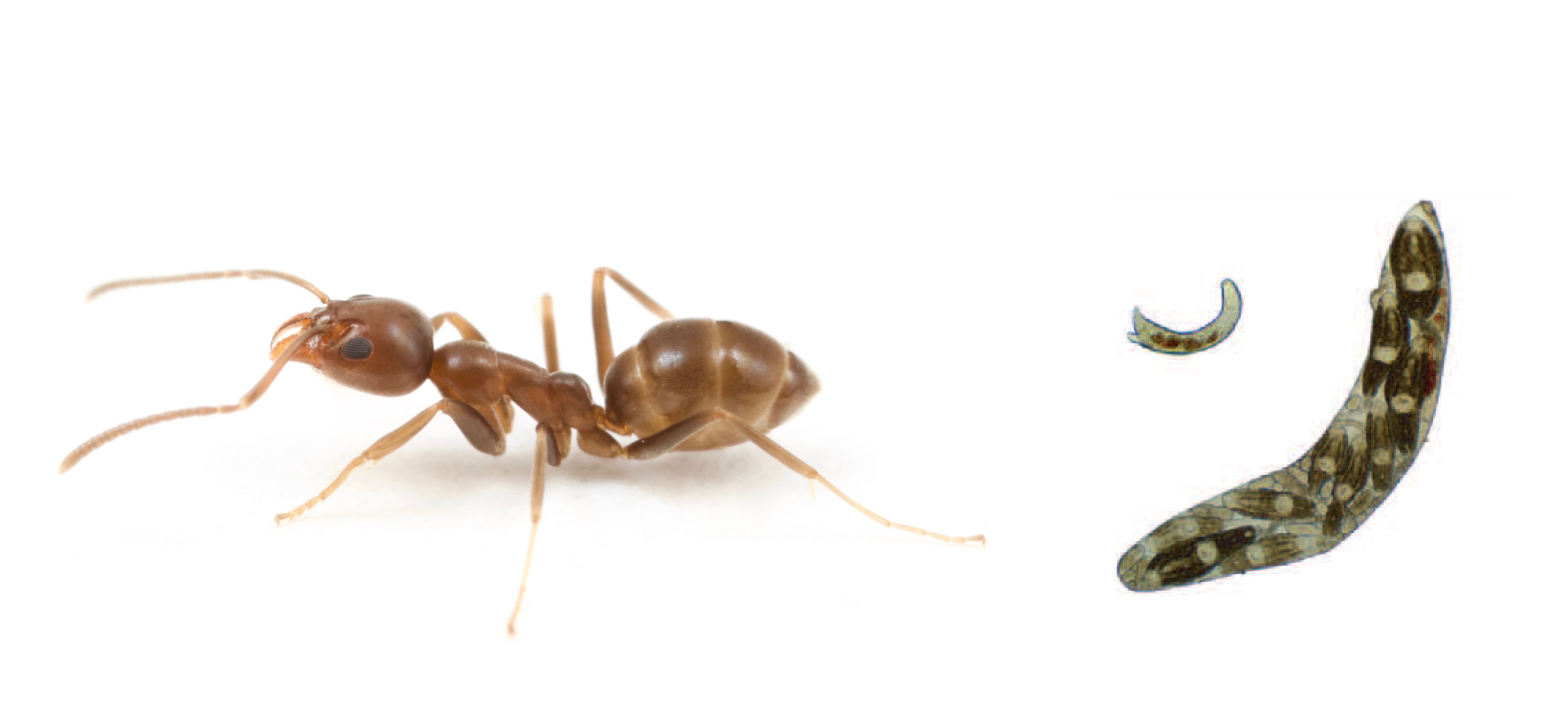
Brian Whyte
PhD Candidate
Email: ba.whyte@berkeley.edu
Office: 5065 Valley Life Sciences Building
Curriculum vitae: Download PDF
Research taxa: Ants and trematodes

Research Interests
In any science, it can be argued that the most interesting questions are those that are the hardest to solve. For evolutionary biology, one of the hardest problems are the puzzles of social evolution. What causes some species to form groups while others remain solitary? Why do some organisms benefit their societies instead of themselves? As humans, we are very familiar with the struggles of our own social lives, and explaining these complexities as a product of natural selection is difficult. However, instead of focusing on our own case, the study of sociality in nature (i.e., sociobiology) has expanded to include the breadth of all biological organization, from cells to supercolonies. Following universal principles, the field is expanding its relevance into medicine, and in my case, parasitology.
I study the social recognition capabilities of social trematodes (i.e., flatworms) and social insects using behavioral assays and chemical analyses. My dissertation focuses on the trematodes, which form colonies inside of California horn snails, and produce a soldier caste that recognizes and attacks other trematodes trying to colonize their same snail host. I use behavioral assays to deduce their scale of recognition (colony-level vs. species level), and use chemical analyses to establish the first hypotheses for what chemical compounds constitute trematode colony identities. My long term goal is to build the inevitable bridge between sociobiology and parasitology, as social behaviors are a much more prevalent feature of parasitic lifestyles than we currently realize.
Projects
- Novel intra- and inter-specific aggression behaviors in trematodes
- Chromatographic analysis of ant cuticular hydrocarbons and trematode tegument lipids
- Sensory ecology of Argentine ant alarm pheromone
- Agent-based modeling of invasive social organisms
Selected Publications
Buellesbach J, Whyte BA , Cash E, Gibson JD, Scheckel KJ, Sandidge R, & Tsutsui ND. 2018. Desiccation resistance and micro-climate adaptation: Cuticular hydrocarbon signatures of different Argentine ant supercolonies across California. Journal of Chemical Ecology 44:1101-1114. https://doi.org/10.1007/s10886-018-1029-y
